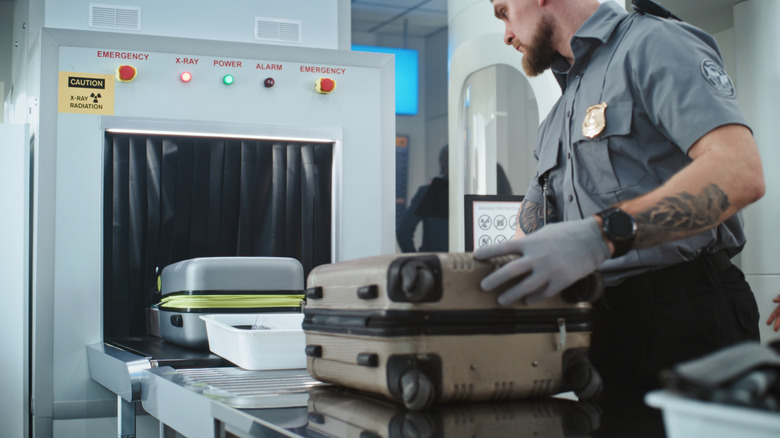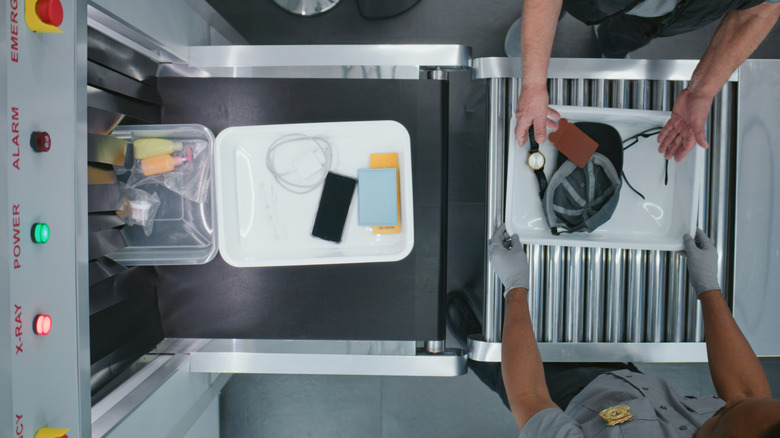The Convenient Luggage Feature That Could Actually Cause Trouble With TSA
We may receive a commission on purchases made from links.
It doesn't take much to land you in hot water with the Transportation Security Administration (TSA) these days. Seemingly normal behaviors that they'll watch you like a hawk for include being dressed inappropriately for the climate at your final destination (yes, really), sweating profusely and smelling unpleasant, staring at your feet or gawking at staff, and even excessive yawning. Though it might seem benign, too much talking could also put you on their radar. And it doesn't help that TSA rules across the country are annoyingly inconsistent.
Not that the list needs adding to, but here's another addition: USB luggage. These travel suitcases feature a USB port connected to a power bank (usually sold separately) that fits into a pocket inside the bag, and they're becoming popular in a world where a phone running out of battery is some travelers' idea of a trip-ruining event. Such battery anxiety is compounded in an airport, where your boarding card and flight information, even your payment methods, are probably located on your phone rather than in a physical format. If you can't get access to a charging port in the lobby or departure lounge, you might be glad to have this accessory on your suitcase.
But these bags are beginning to rouse TSA suspicions. USB suitcases contain lithium-ion batteries, which are common in small electronic devices, but have become item non grata in airports. Due to fire risks stemming from potential overheating and inaccessibility in the cargo hold, most airlines restrict the size and type of lithium-ion batteries allowed on board.
Finding a TSA-approved USB bag
Generally, carry-on luggage with a power bank and USB port is OK to bring on a plane, though you should check if the power bank is removable and that its specifications are TSA-compliant. Lithium-ion batteries must contain no more than 100 watt-hours (Wh) per battery, which is enough for charging most consumer electronics. Larger batteries (101-160 Wh) can be carried on board only with prior airline approval. Because of the fire risk, you will not be allowed to keep power banks or other lithium-ion-based devices in your checked luggage.
When searching for USB luggage online, you should check if the words "TSA approved" or similar appear in the item description — and always browse reviews online to ensure this is actually the case. Reputable suitcase maker July offers sleek, hard-shelled carry-ons that include a removable battery with a USB-C port and an integrated TSA lock for $295. Tumi's Voyageur Leger is another slick, boutique option, though it'll knock you back almost $800.
Bargain hunters should consider UrbanExplorer's 24-inch check-in aluminum-frame luggage. With USB and USB-C ports, a handy compartment for storing charging laptops or tablets, and a retractable cup holder, it's a much more affordable option at $125.

